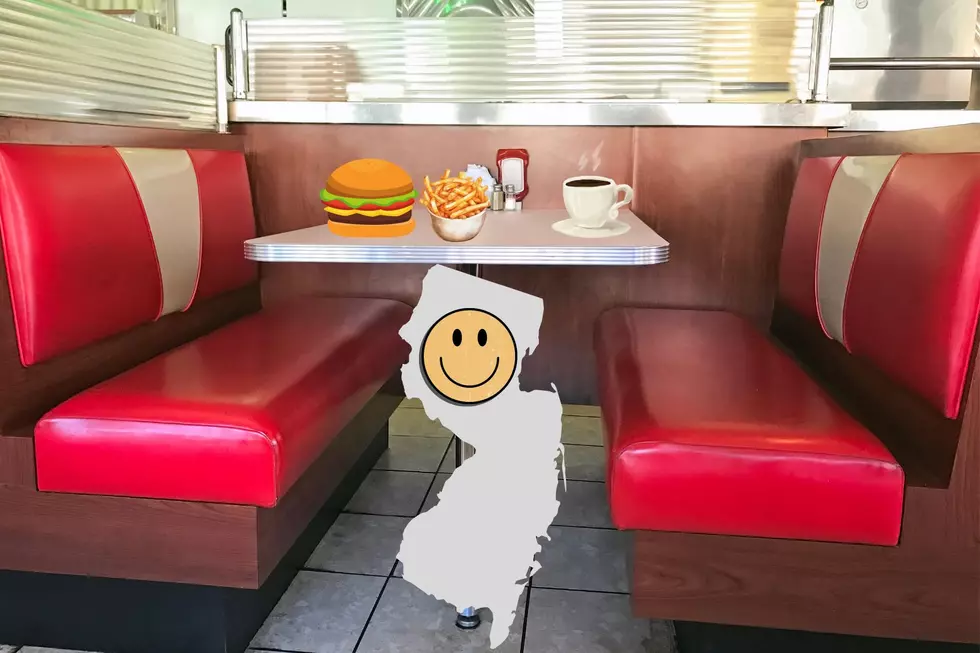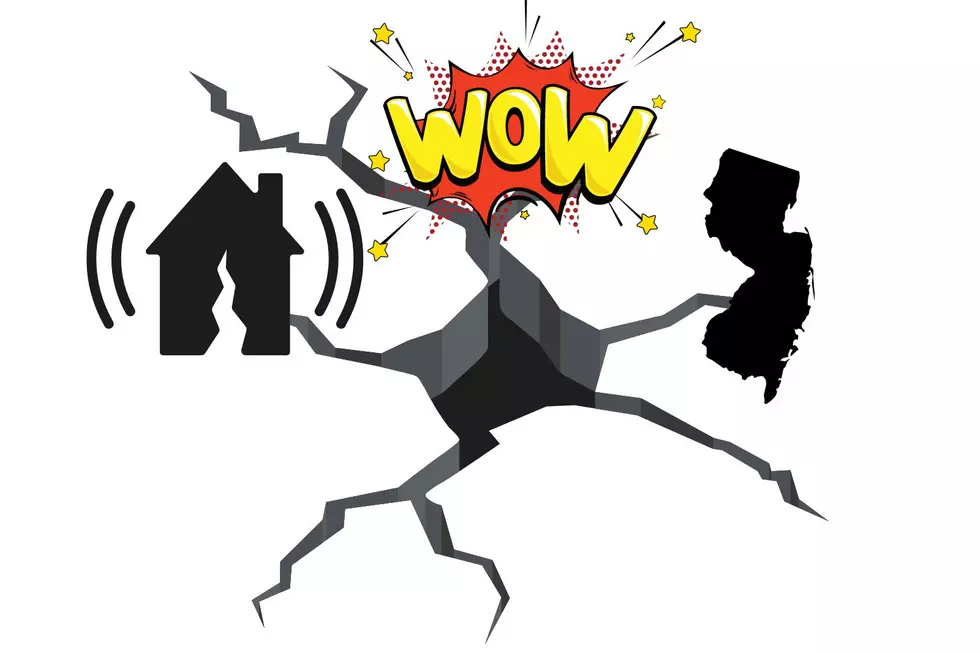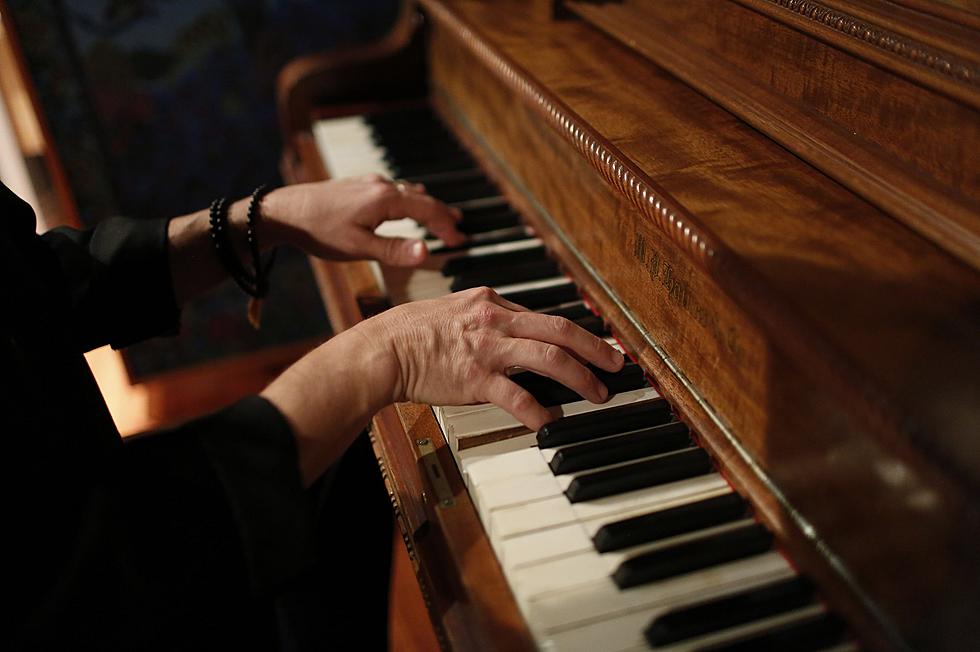![Toms River Native Releases Pine Barrens Based Novella [Interview]](http://townsquare.media/site/394/files/2015/02/Labor-of-Longing.jpg?w=980&q=75)
Toms River Native Releases Pine Barrens Based Novella [Interview]
Yale University Professor Noël Valis has covered a lot of topics in her career - from The Spanish Civil War, to poetry, and kitsch & culture, she has published two dozen books, traveled extensively, has been honored by The New England Council of Latin American Studies and is a Guggenheim fellow. Professor Valis also grew up in Toms River.
I had the opportunity to chat with Dr. Valis about growing up in Ocean County in the 50s and 60s, what brought her from the Pine Barrens to the Ivy League, her new novella, The Labor of Longing, and much more.
What are some of your favorite memories of growing up in Toms River?
I loved walking over to Huddy Park and the river; there was something wonderfully calming that drew me to the spot. I spent hours and hours in Bishop Memorial Library, and when the library didn’t have what I wanted, the Bookmobile, which must have been one of the first of its kind, delivered them. I still remember the thrill the first time I held a book that had to be brought to me in this marvelously personal way. It was an English translation of a novel by Balzac.
I was, and still am, mad about movies. Saturday matinees were twenty-five cents at the Community Theater, where I was a cashier in my senior year of high school. The perk: all the free movies I wanted! The creaking wooden floors of Woolworth’s. I loved the annual Halloween Parade. One year my brother Greg and I were even on one of the floats. My father, who owned Lee’s Flower Shop, fixed up a Christmas scene, with a tree and presents. We were the kids in pajamas waiting for Christmas. I have to confess that I absolutely loved being part of the spectacle. It was grand.
I think more than anything else is to remember how small Toms River was in the 1950s and early 60s. When I was a child, it was a universe of maybe five or six streets. Not that there weren’t more than five. But that was the world for me. Our house was on Main Street. And on the same street was the god of small things: the F.W. Woolworth store, which was heaven for children.
The other thing: that we were at the edge of the Pine Barrens. As though we were living in the orbit of some permanent mystery.
What were your childhood dreams of your adult life when you were growing up in Ocean County? Did you think that you’d be in academia?
I certainly didn’t think I’d end up at Yale! My parents did not finish high school. I do not recall my father ever reading a book, but my mother was an avid reader. My father had that kind of practical intelligence that can never be praised enough, and my mother was full of intuition, the sort of thing that you can’t quantify, you can’t define, but that infused my childhood and that no degree can teach you. It’s a life spirit that some people have and, if you’re lucky, they leave traces of it behind.
What did I think I wanted to be? Like a lot of kids, a veterinarian, because I adored animals, especially horses, dogs and cats. Later, I wanted to be an actress. And there were small, secret thoughts about being a writer, but the thought was so foreign to my world that I almost couldn’t utter the words aloud, and in fact, I didn’t. I do remember, however, writing several chapters of a romantic novel, some of which I think was freely cribbed from Daphne du Maurier, and my friends in school reading the hand-written pages on lined yellow paper and asking for more.
By high school, I was soaking up all the words I could find, in any language I could lay my hands on—English, Latin, Spanish, French, it didn’t matter. I was sure I was going to be an interpreter/translator (maybe even at the U.N.!), and if not that, then a high school teacher of French and Spanish. I had no idea how I was going to get there. No one in my family had ever gone to college, there was no money, and my parents were going through a bitter divorce. My father saw no value in girls going to college. But Douglass College, the women’s college of Rutgers University, offered me a scholarship and a loan. By the end of my first year, I was married and expecting a child. At the start of my senior year, three wonderful professors suggested to me that I apply to graduate school. But first, they had to explain to me what that was. I was accepted into the Spanish graduate program at Bryn Mawr College, with the support of an NDEA Fellowship. For this, I could thank the Russians. The National Defense Education Act, established in 1958, was a response to the launch of the first-ever satellite Sputnik and the consequent worry that the U.S. was falling behind in the sciences and education. So that’s how a kid from Toms River eventually ended up at Yale.
Much of your work to date has been non-fiction, what made you decide to try your hand at a historical novel?
I wouldn’t call it a historical novel, though The Labor of Longing certainly has an historical feel to it, because it’s set at the end of the nineteenth century, mainly in Toms River, the Pine Barrens, and Philadelphia, as well as an Italian village.
It’s hard to say what propelled me to write it when I did, though the idea was in my head for a long, long time. I’ve always been something of a late bloomer. To tell the truth, the person most surprised that I wrote it was myself. I wrote it over a period of eight months, and it was at once the most exhilarating and terrifying experience I’ve ever had.
I had written and published a few short stories many years before. And a book of poetry, My House Remembers Me had appeared, with a lot of poetry scattered throughout an array of small literary magazines. I’ve also done quite a bit of literary translation, which hones your writing skills, but this was the first time I had tried the novel form.
Your book is focused on the Pine Barrens, what made you decide to use that setting?
The Pine Barrens have felt like a part of me since I was a child. Our family had no personal history attached to the place, but still, I felt it as part of me. I remember going with my father deep into the woods in December, where he’d choose a tree, chop it down, for our Christmas tree. We drove, it seemed, for miles and miles to get to the spot. There we were, alone in that desolate, haunting place, and except for the cracked thud of my father’s axe, it was as quiet as the imagination on a Sunday drive.
And then of course, there were the stories. And later, John McPhee’s wonderful book. Surprisingly, there don’t seem to be very many works of fiction on the Barrens. Joyce Carol Oates wrote a novel called The Barrens, and of course, there’s the memorable episode of The Sopranos also called “The Barrens,” leaving viewers with the impression that the place—and New Jersey—is populated mostly with dead bodies.
What kind of image would you like people not familiar with Ocean County to have of the area?
Well, definitely not what you see on The Sopranos, and mind you, I loved the series. That it’s a wonderful place for a kid to grow up in. And a beautiful place, especially the Pine Barrens. I’m also reminded of what Walt Whitman said about New Jersey in general: that “character is, indeed, on a low key, but it is fresh, independent and tough as a knot.” After the Lenni Lenape, both the early settlers and the immigrants who came later were hard-working, modest folk. There wasn’t a lot of wealth in the Toms River I grew up in, but nobody much minded.
The history of Ocean County, and Toms River especially, is pretty deep and expansive – what areas of the local history do you think people should know more about?
The history of Toms River goes back to the pre-revolutionary war days. We know about Captain Joshua Huddy’s defense of the blockhouse during the Revolutionary War and the protests over his hanging by the British, and rightfully so, but we know less about the unsung heroes and less about the lives of ordinary people. This is what the great Spanish philosopher Miguel de Unamuno called the intrahistoria, or inner history, of nations and peoples. The characters in my novella are part of that inner history.
What qualities of growing up in Ocean County do you feel are still with you today?
The sense of individual worth, but of individual worth earned, not handed to you by somebody else. The value of a work ethic. The Labor of Longing is not simply about longing: the other word, labor, is just as important, even if we are not always certain why we labor. But there is a deep and mysterious connection between the two.
If people are interested in learning more about the history of Ocean County, where would you suggest they start to learn more?
The library’s a good start, but there is also another great resource in Toms River, the Ocean County Historical Society, which offers books about Toms River, the Barrens, and Ocean County and has a web page. And there’s plenty of material on line. John McPhee’s The Pine Barrens is a classic on the subject. Images of America: Along the Toms River is a great pictorial record of the town. Older but still very worthwhile books are Edwin Salter’s A History of Monmouth and Ocean Counties and Gustave Kobbé’s New Jersey Coast and Pines.
What projects are you currently working on?
I’m writing a book on the universally celebrated Spanish poet-playwright, Federico García Lorca, who was assassinated at the start of the Spanish Civil War in 1936. Since then, he has become a kind of cultural icon for people all over the world. I guess you could say it’s a long way from Jersey, but then again I’ve never felt I left it.
My sincere thanks to Dr. Valis for her time! If you would like to check out The Labor of Longing, just click here to order your copy!
More From 92.7 WOBM









